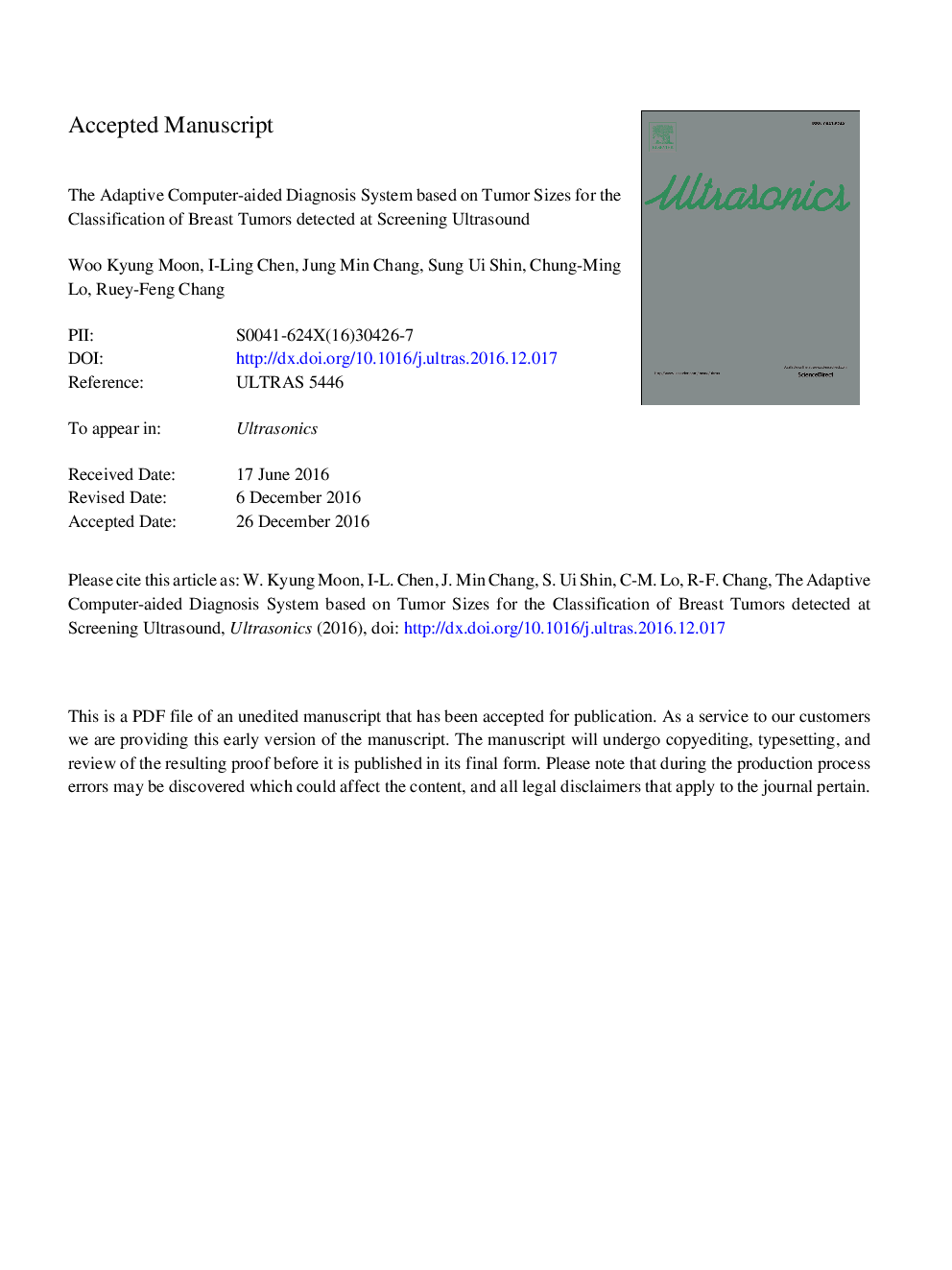| Article ID | Journal | Published Year | Pages | File Type |
|---|---|---|---|---|
| 5485364 | Ultrasonics | 2017 | 37 Pages |
Abstract
Screening ultrasound (US) is increasingly used as a supplement to mammography in women with dense breasts, and more than 80% of cancers detected by US alone are 1 cm or smaller. An adaptive computer-aided diagnosis (CAD) system based on tumor size was proposed to classify breast tumors detected at screening US images using quantitative morphological and textural features. In the present study, a database containing 156 tumors (78 benign and 78 malignant) was separated into two subsets of different tumor sizes (<1 cm and ⩾1 cm) to explore the improvement in the performance of the CAD system. After adaptation, the accuracies, sensitivities, specificities and Az values of the CAD for the entire database increased from 73.1% (114/156), 73.1% (57/78), 73.1% (57/78), and 0.790 to 81.4% (127/156), 83.3% (65/78), 79.5% (62/78), and 0.852, respectively. In the data subset of tumors larger than 1 cm, the performance improved from 66.2% (51/77), 68.3% (28/41), 63.9% (23/36), and 0.703 to 81.8% (63/77), 85.4% (35/41), 77.8% (28/36), and 0.855, respectively. The proposed CAD system can be helpful to classify breast tumors detected at screening US.
Related Topics
Physical Sciences and Engineering
Physics and Astronomy
Acoustics and Ultrasonics
Authors
Woo Kyung Moon, I-Ling Chen, Jung Min Chang, Sung Ui Shin, Chung-Ming Lo, Ruey-Feng Chang,
